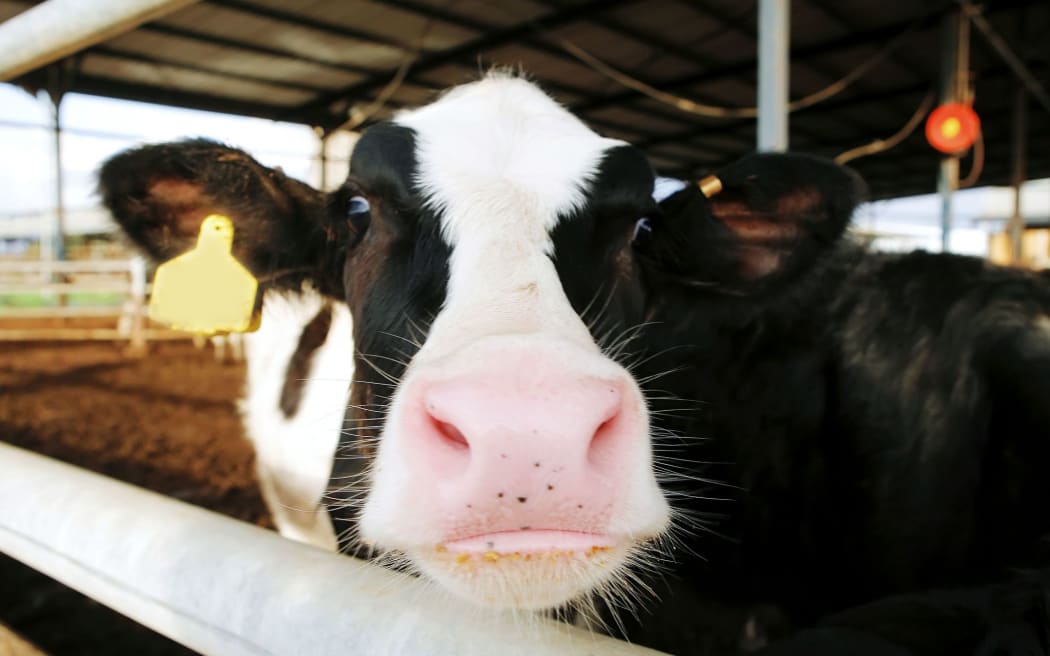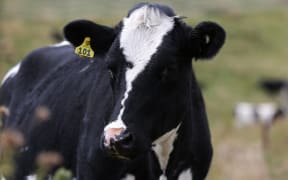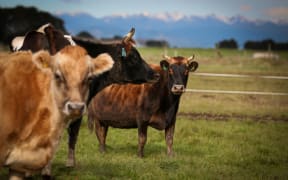New Zealand-led research shows global solutions to reduce methane emissions from ruminant, or cud-chewing, animals such as cows are feasible, because the microbes causing the emissions are similar around the world.

Photo: 123rf.com
The Global Rumen Census project analysed the microbes responsible for methane emissions from a wide range of animals around the world.
Methane is a greenhouse gas which is contributing to global warming.
Agresearch scientist Peter Janssen said the finding meant that new technologies that sought to reduce greenhouse gas emissions from animals such as cows should have global applications.
"If you are developing inhibitors or products like vaccine it means that a product that's developed here should be able to be applied everywhere in the world and vice versa. And that was one of the aims of the project, just to see how variable or similar these were.
"If it had turned out the methanogens were different everywhere, it means you need a local solution for the problem everywhere but if they are very similar, as they turned out to be, it means a global collaboration or a product developed in one place can result in something everyone can use."
Scientists have yet to figure out how to stop ruminant animals such as cows emitting methane.




